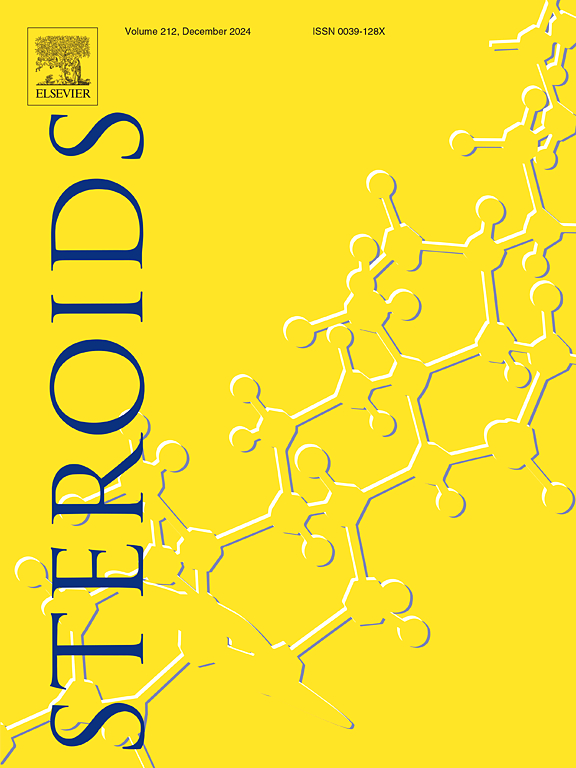地塞米松对轻度血清条件下正常前列腺上皮细胞生物学特性和代谢适应的影响
IF 2.1
4区 医学
Q4 BIOCHEMISTRY & MOLECULAR BIOLOGY
引用次数: 0
摘要
限制培养基中的血清浓度构成一种环境应激,破坏细胞稳态并激活适应性代谢。本研究旨在研究地塞米松(DEX)对应激条件下前列腺上皮细胞生物学特性(如活力、粘附、迁移)和糖脂代谢的影响。该研究使用了一种非致瘤性的人类前列腺细胞系PNT1A。在轻度血清剥夺条件下,DEX通常用于治疗去势抵抗性前列腺癌,也会在G0/G1期阻止正常前列腺细胞。观察到PNT1A细胞代谢活性的降低和细胞凋亡的限制与NF-κB家族和FOXO3基因表达的降低有关。此外,DEX通过调节细胞粘附于ECM蛋白(如纤维连接蛋白和胶原I和IV)的可塑性和能力来调节PNT1A的迁移。这与VIM、ZEB1和ZEB2基因的mRNA水平变化有关。最后,地塞米松似乎有助于PNT1A细胞适应应激并增强抗氧化防御,可能是通过重编程脂质代谢(例如,LDLR, CPT1, MGLL),但不一定是葡萄糖代谢。本文章由计算机程序翻译,如有差异,请以英文原文为准。

Effect of dexamethasone on biological properties and metabolic adaptations of normal prostate epithelial cells under mild serum conditions
Limiting serum concentration in culture medium constitutes an environmental stress that disrupts cellular homeostasis and activates adaptive metabolism. This study aims to examine the impact of dexamethasone (DEX) on biological properties (e.g. viability, adhesion, migration) and glucose and lipid metabolism of prostate epithelial cells under stress conditions. The study used a non-tumorigenic human prostate cell line, PNT1A. In mild serum deprivation conditions, DEX, commonly used in the treatment of castration-resistant prostate cancer, also arrests normal prostate cells in the G0/G1 phase. Observed reduction in metabolic activity and limiting apoptosis of PNT1A cells as related to decreased expression of the NF-κB family and FOXO3 genes. Moreover, DEX modulated PNT1A migration by regulating cell plasticity thought capacity of adhesion to ECM proteins such as fibronectin and collagen I and IV. This was associated with changes in mRNA levels for the genes VIM, ZEB1 and ZEB2. Finally, it seems that dexamethasone helps PNT1A cells adapt to stress and enhance antioxidant defense, possibly by reprogramming lipid metabolism (e.g., LDLR, CPT1, MGLL), but not necessarily glucose metabolism.
求助全文
通过发布文献求助,成功后即可免费获取论文全文。
去求助
来源期刊

Steroids
医学-内分泌学与代谢
CiteScore
5.10
自引率
3.70%
发文量
120
审稿时长
73 days
期刊介绍:
STEROIDS is an international research journal devoted to studies on all chemical and biological aspects of steroidal moieties. The journal focuses on both experimental and theoretical studies on the biology, chemistry, biosynthesis, metabolism, molecular biology, physiology and pharmacology of steroids and other molecules that target or regulate steroid receptors. Manuscripts presenting clinical research related to steroids, steroid drug development, comparative endocrinology of steroid hormones, investigations on the mechanism of steroid action and steroid chemistry are all appropriate for submission for peer review. STEROIDS publishes both original research and timely reviews. For details concerning the preparation of manuscripts see Instructions to Authors, which is published in each issue of the journal.
 求助内容:
求助内容: 应助结果提醒方式:
应助结果提醒方式:


